Related Research Articles

Graham Greene CM is a First Nations (Oneida) actor who has worked on stage and in film and television productions in Canada, the United Kingdom, and the United States. He has achieved international fame for appearing in Kevin Costner's Dances with Wolves (1990), which earned him an Academy Award nomination. Other notable films include Thunderheart (1992), Maverick (1994), Die Hard with a Vengeance (1995), The Green Mile (1999), Skins (2002), Transamerica (2005), Casino Jack (2010), Winter's Tale (2014), The Shack (2017), Wind River (2017) and Shadow Wolves (2019).
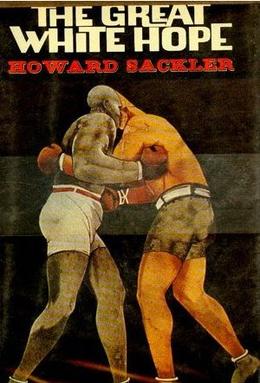
The Great White Hope is a 1967 play written by Howard Sackler, later adapted in 1970 for a film of the same name.
Sir Ralph David Richardson was an English actor who, with John Gielgud and Laurence Olivier, was one of the trinity of male actors who dominated the British stage for much of the 20th century. He worked in films throughout most of his career, and played more than sixty cinema roles. From an artistic but not theatrical background, Richardson had no thought of a stage career until a production of Hamlet in Brighton inspired him to become an actor. He learned his craft in the 1920s with a touring company and later the Birmingham Repertory Theatre. In 1931 he joined the Old Vic, playing mostly Shakespearean roles. He led the company the following season, succeeding Gielgud, who had taught him much about stage technique. After he left the company, a series of leading roles took him to stardom in the West End and on Broadway.
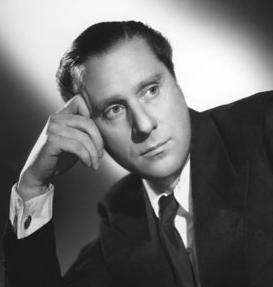
Sir Carol Reed was an English film director and producer, best known for Odd Man Out (1947), The Fallen Idol (1948), The Third Man (1949), and Oliver! (1968), for which he was awarded the Academy Award for Best Director.
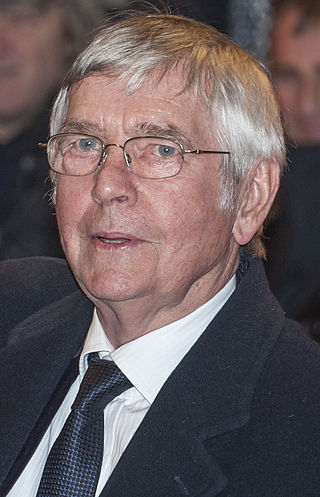
Sir Thomas Daniel Courtenay is an English actor. After studying at the Royal Academy of Dramatic Art, he achieved prominence in the 1960s as part of actors of the British New Wave. Courtenay received numerous accolades including three BAFTA Awards, a Golden Globe Award, the Silver Bear, and the Volpi Cup for Best Actor as well as nominations for two Academy Awards, two Tony Awards, and a Emmy Award. He was knighted for his services to cinema and theatre in the 2001 New Year Honours.
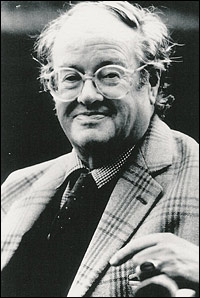
Sir John Clifford Mortimer was a British barrister, dramatist, screenwriter and author. He is best known for short stories about a barrister named Horace Rumpole, adapted from episodes of the TV series Rumpole of the Bailey also written by Mortimer.
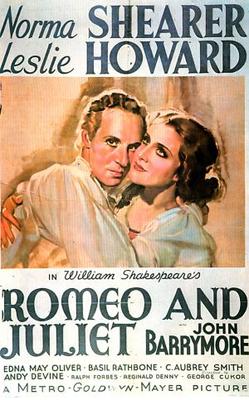
Romeo and Juliet is a 1936 American film adapted from the play by William Shakespeare, directed by George Cukor from a screenplay by Talbot Jennings. The film stars Leslie Howard as Romeo and Norma Shearer as Juliet, and the supporting cast features John Barrymore, Basil Rathbone, and Andy Devine.

Sir David Rippon Hare is an English playwright, screenwriter and theatre director. Best known for his stage work, Hare has also enjoyed great success with films, receiving two Academy Award nominations for Best Adapted Screenplay for writing The Hoursin 2002, based on the novel written by Michael Cunningham, and The Readerin 2008, based on the novel of the same name written by Bernhard Schlink.

The Gielgud Theatre is a West End theatre, located on Shaftesbury Avenue, at the corner of Rupert Street, in the City of Westminster, London. The house currently has 994 seats on three levels.
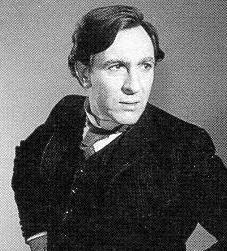
Sir Robert Graham Stephens was a leading English actor in the early years of Britain's Royal National Theatre. He was one of the most respected actors of his generation and was at one time regarded as the natural successor to Laurence Olivier.
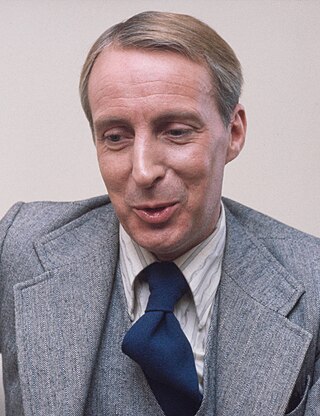
Ian William Richardson was a British actor from Edinburgh, Scotland.
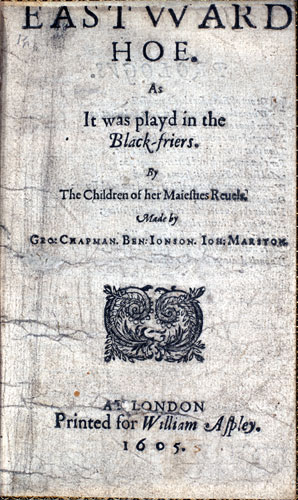
Eastward Hoe or Eastward Ho! is an early Jacobean-era stage play written by George Chapman, Ben Jonson and John Marston. The play was first performed at the Blackfriars Theatre by a company of boy actors known as the Children of the Queen's Revels in early August 1605, and it was printed in September the same year.
Six Characters in Search of an Author is an Italian play by Luigi Pirandello, written and first performed in 1921. An absurdist metatheatric play about the relationship among authors, their characters, and theatre practitioners, it premiered at the Teatro Valle in Rome to a mixed reception, with shouts from the audience of "Manicomio!" ("Madhouse!") and "Incommensurabile!", a reaction to the play's illogical progression. Reception improved at subsequent performances, especially after Pirandello provided for the play's third edition, published in 1925, a foreword clarifying its structure and ideas.

Sir David Mark Rylance Waters is an English actor, playwright and theatre director. He is known for his roles on stage and screen having received numerous awards including an Academy Award, three BAFTA Awards, two Olivier Awards and three Tony Awards. In 2016 he was included in the Time 100 list of the world's most influential people. In 2017 he was made a knight by Queen Elizabeth II.
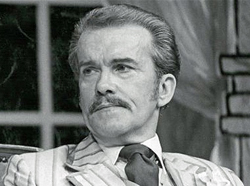
Albert John Moffatt was an English character actor and playwright, known for his portrayal of Hercule Poirot on BBC Radio in twenty-five productions and for a wide range of stage roles in the West End from the 1950s to the 1980s.

The Life and Adventures of Nicholas Nickleby is an 8½ hour-long adaptation of Charles Dickens’ 1839 novel, performed in two parts. Part 1 was 4 hours in length with one interval of 15 minutes. Part 2 was 4½ hours in length with two intervals of 12 minutes. It was originally presented onstage over two evenings, or in its entirety from early afternoon with a dinner break. Later it was presented on television over four evenings.
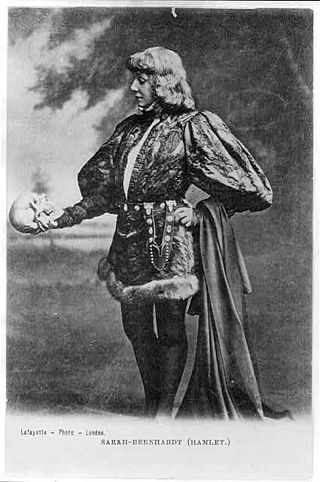
Hamlet by William Shakespeare has been performed many times since the beginning of the 17th century.
Norbert Smith: A Life, also released as Sir Norbert Smith: A Life, is a 1989 mockumentary television film, charting the life and career of the fictitious British actor Sir Norbert Smith. It stars Harry Enfield in the title role. It was written by Harry Enfield and Geoffrey Perkins and directed by Geoff Posner.

The Voodoo Macbeth is a common nickname for the Federal Theatre Project's 1936 New York production of William Shakespeare's Macbeth. Orson Welles adapted and directed the production, moved the play's setting from Scotland to a fictional Caribbean island, recruited an entirely Black cast, and earned the nickname for his production from the Haitian vodou that fulfilled the role of Scottish witchcraft. A box office sensation, the production is regarded as a landmark theatrical event for several reasons: its innovative interpretation of the play, its success in promoting African-American theatre, and its role in securing the reputation of its 20-year-old director.

Raffles is a British radio programme including eighteen episodes that first aired on BBC Radio 4 from 1985 to 1992, and an additional radio play that aired in 1993 on the BBC World Service. The series was directed by Gordon House and was based on the A. J. Raffles stories by author E. W. Hornung.
References
- ↑ Greene, Graham (1985). The Collected Plays of Graham Greene. Penguin. p. 357.